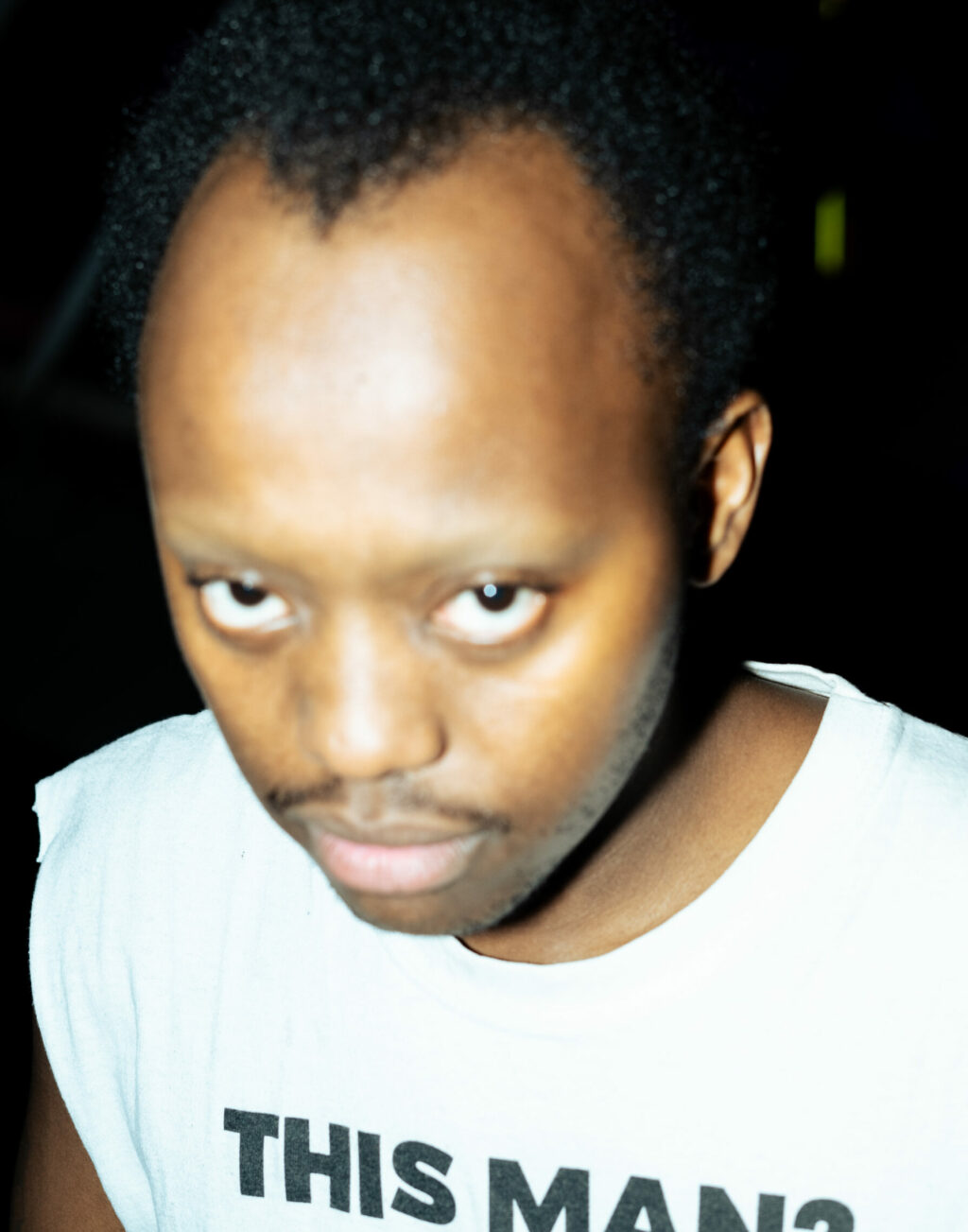- Alex Perry: The Prince of Xperrymental Music
- Porcelain Id: Embracing Multitudes
- Emmanuelle: Harmonies of Identities
Black History Month is in full swing in Belgium and KET Magazine has decided to write a series of articles highlighting black queer artists from Brussels/Belgium to celebrate the community that has made it possible for the LGBTQIA+ community to thrive.
Meet Porcelain Id, an artist who does not shy away from showing off their multitudes. Following the release of their debut record “Bibi:1” and in light of their upcoming show at the Ancienne Belgique on the 21st of April 2024, KET Magazine has met up with Porcelain Id to talk about their music, and their experience in the music industry as a queer POC.
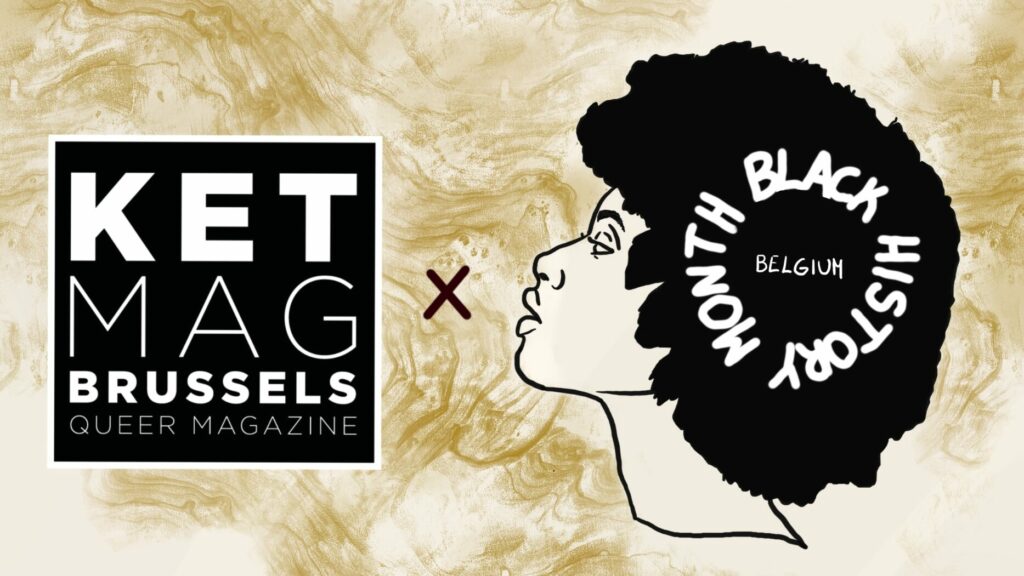
Hello Porcelain Id, I’ve always been curious about your stage name. Could you explain how you decided on it?
There’s actually two reasons for this name. My guitarist, and dear friend, had written a song called Porcelain Dog. We were actually supposed to start a project together, but there were some losses, so it didn’t flourish. So, it was a way to honour this friend. But also, I was trying to bring together the many facets of my identity and that’s where the “id” comes from. I think the name is like a clothing item that is too big, I am growing into it. The more time passes, the more sense it will make.
You released your debut record (Bibi:1) last month, how has the reception been?
Very good actually. I remember when I was playing in Slovenia, one of my best friends said that he would like to take a moment to tell me that I did a great job. I’m terrible with these things, but it was really heartwarming. I am still waiting for the first bad review though, so I can really know what everyone thinks of my music. So if you want to discover my music and make your own judgement of it, I invite you to listen to my album.
Talking about your album, why did you choose to call it Bibi:1?
Adel Setta, the photographer of the album and my dear friend used to call me habibi a lot and he is the person who started all of this, even my first EP. He has always been there in the making, and told me when it wasn’t good enough yet. So I decided to render homage to him, to my friend, by calling my album Bibi. And I decided to add the 1 because, who knows? There might be a Bibi:2 and then a Bibi:3 and everything will be said and done hopefully.
Do you have a song which you would consider being your favourite on the album? Or one which you are particularly proud of?
I would say Brilliant is the song that I am proudest of, because it manages to bring together everything I tried to do in this album: it combines the acoustic sound, the electric elements, the group, the gospel. So it really represents every aspect that I brought forward in this album. My favourite song now, though, would be Adam Coming Home. And the one closest to me would be Low Poly, purely about the writing. It is the closest to me and something that I would love to listen to, even if it wasn’t my song.

Your album contains a multitude of different genres, would you say that this mix represents you as a person?
Oh, definitely! It represents what I grew up with, the music I got to know with the people I got to know/used to know. It represents where I’m from, what I heard when I was a child, like the gospel music. I’m glad that I didn’t have to make a choice. I think it would have been quite sad and I would even say it would have been a mistake to have chosen one single genre, because the album would have made no sense at all.
Tomorrow you kick off your headliner shows, how are you feeling about going on tour and performing in all these different venues?
I’m very much looking forward to it. It’s a very challenging time, and having the opportunity to share the work of many many people feels like a good balance to how challenging it was. I’m excited to get to work, really. I have a show coming up at the Ancienne Belgique on the 21st of April. I’m really looking forward to this show, because Brussels was the first city that really embraced me as I am.
You said it was challenging, how so?
I think much like the period in which I wrote bibi:1, it was a transitional moment in my life and it feels like that again in a way. So it’s challenging, because in any transition there’s a lot of tumbling, and there’s a lot of change.
What does music represent to you?
For a long time music represented a coping mechanism for me. It was something that I would resort to to calm myself, to reach certain emotions. I can’t cry for example, but I can express those feelings of sadness in music. But I need to move beyond this concept of music as a coping mechanism because I think that if I keep doing it, I will not be able to enjoy music and really make it my passion. Hence, I won’t be able to evolve.
Are there any specific themes or messages you aim to convey through your art?
For the album, the main theme was how to cope with delusion. So, instead of pretending that I’m not delusional in some ways, I really tried to present these flaws. I think we all are delusional sometimes, and that’s okay. You meet someone and you already envision what kind of relationship you could have with them. You think you are picking up some signals, when there are none.
I could have written a love song, but it wouldn’t represent how delusional I sometimes get. So I never tried to make a portrait of someone, because I think it is impossible. I do really believe that to write about someone is to forget who they are. And I try to really bring that forward. Representing someone else is impossible, to me. And while there’s probably a lot of very beautiful poetry and literature that manage to truly encapsulate the person lovingly, I’m not there yet.
I feel like the balance to all this delusion though are the outros of my songs, as people come to sing together as a group. The genuine beauty that there is counterbalances the imaginary beauty. People are amazing, they contain multitudes and it comes forward in these beautiful, lush outros that I love. [laughs] I want a 10 hours version of them [laughs]
Who or what are some of your biggest inspirations and influences in your artistic journey?
I would say Youniss Ahamad, the producer of this album. He’s been a gigantic influence. I very much think I matured much more as an artist because of his way of working, and of producing. He truly pushes you to challenge what you’re sure of.
Other than Youniss, I would say some big inspirations for me are Nick Cave, The Nationals, The Moldy Peaches, and a lot of gospel music from my home country. Especially 80s gospel from the very bad VHS tapes. On the album, for example, we sampled a children’s choir from that type of gospel music.
There are also a lot of non-western inspirations in my album, such as oldschool arabic music that Youniss introduced to me, and instruments that are not western, like Indian percussions. It really is what Youniss and I are made of and in this album we truly meet in the middle. I feel like no one had to give up anything. No compromises whatsoever needed to be made.
In your interview with De Morgen, you said that you wanted to collaborate with Fixkes but that this “probably doesn’t completely match the expectations people have of [you] as a black, queer artist”, what do you think these expectations are?
I think they expect hip-hop music, soul, or what is regarded as black music; Which also just sums up my whole art history. There’s this promise that if you assimilate enough in this culture, you will be accepted. Uhm… No [laughs] I think I’ve assimilated as deeply as anyone could have: I sing in the language, I write in the language, I love the language. A true love, but that doesn’t mean I’m accepted. I think it’s funny in the most not haha way.
Talking about these expectations, and prejudices really, have you faced any major challenges when it comes to your music? Be it the process of writing music, or performing it?
I think I’ve faced different challenges than the ones I’ve had growing up. I think now, the biggest challenge I face stems from the whole concept of being a “good” immigrant. So far, I think I’ve positioned myself in a way that shows that I too can love this Belgian culture, without having to be a nationalist. I can unironically love this, not because it’s Belgian, but because it’s good, to me. For some people, however, me loving this Belgian culture signifies that I am into the white things, and I’m therefore a “good immigrant”. That’s something I’m struggling with, because I don’t want to be called that. That’s the real challenge.
At the same time, I do think that, if I were given a bigger platform, it would rub a lot of people the wrong way, just because of my mere existence. And that’s not just me, but any black and/or queer artist and just POC in general in Belgium.
I think it’s important to give this platform to queer POC because otherwise there will only be representation in the media of these highly stereotyped versions of black people and then obviously people will be like ‘oh, if you’re different from this stereotype then you’re white’ or you’re an “oreo”. Well that’s just not true. Like every other person, we have facets and we are individuals.
Exactly, I could not have put it better. We should be allowed to contain multitudes. That’s what my Porcelain id is. I don’t want to be forced to make a decision as to how or what I can present myself as. Having to choose just one little aspect of my identity is just not fair because that kind of pressure is not put on people/artists that aren’t of colour. We shouldn’t have to choose one thing just because it fits the narrative. It should be because it’s what you are and what you like. Point blank.
Finally, what message would you like to share with other non-binary individuals, particularly within the Black community, who may be navigating similar paths?
I hope you find someone who can hold you. In any way.
I’m well surrounded now, and I know just how essential it is to have someone who can hold you while you are being questioned, because you are not fitting in as you’re supposed to. At the same time you need someone to hold you while you accept that that’s who you are. You need someone at home, whatever that place is. Of course there’s apps, and there’s the internet now, thank god. You can find people there and form a connection with them.
I was lucky enough to have had a partner that truly supported me when I announced what conclusions I had arrived at, what my needs were, and they tried their very best to help me figure it all out. I hope that any non-binary person can find that.
As they set off on tour to share their music with the world, make sure to check Porcelain Id’s tour dates, as they might be coming to a city near you. Don’t miss the chance to witness their ability to captivate audiences with their unique blend of talent and creativity.
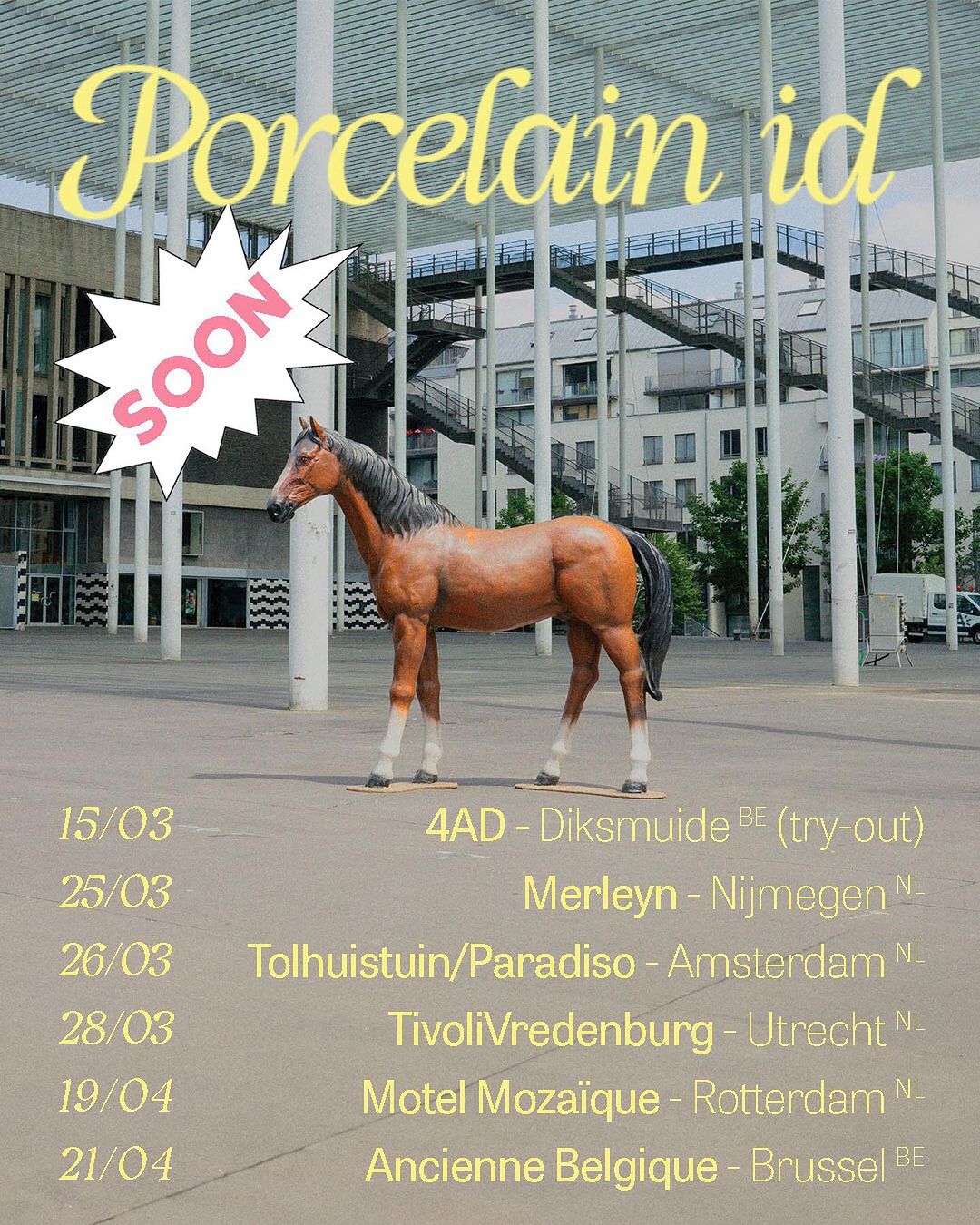
Bibi:1 is out on all streaming platforms
You may also like
-
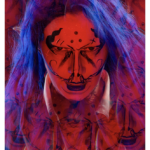
Laetitia BICA : If there’s nothing at stake, why play?
Driven by her Sicilian roots and passion for photography, Laetitia BICA challenges industry norms through
-

XRDS 2024: The Ultimate Festival for Music, Diversity, and Green Initiatives
The XRDS Festival, hosted under the iconic Anderlecht viaducs, is set to return on August
-
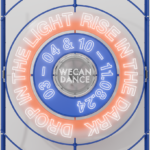
WECANDANCE 2024: Embracing Change, Sustainability, and Inclusion
WECANDANCE, the renowned electronic beach festival, is set to return this summer with a bold
-

Martin PY : “Queer stories always get people talking and thinking.”
Martin PY, hailing from the coastal village of Carqueiranne, France, found his passion for storytelling
-

A Safe Haven in the Heart of Europe: Celebrating Brussels Pride 2024
As the capital of Belgium and Europe, Brussels is gearing up to kick off the
